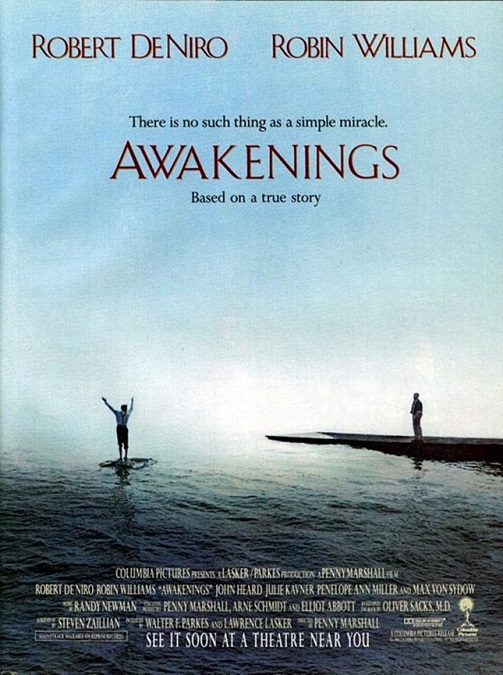
Awakenings – 1990
I loved this movie. It got so many things right. It was highly emotional, inspirational, slightly sappy and sentimental, it had some really top-notch acting, a smart script, a perfect cast, and a beautiful message. Both Robin Williams and Robert De Niro were wonderfully believable in their respective roles. By the end of the film, my cheeks were streaked with tears. It got me.
This was a film based on the true story of British Dr. Oliver Sacks, whom director Penny Marshall, of Lavern and Shirley fame, turned into an American, Dr. Malcolm Sayer, played by Williams. He is portrayed as a brilliant research doctor who is so socially crippled as to be nearly on par with the patients over whom he is given charge. They are victims of the 1917 – 1928 epidemic of encephalitis lethargica, which leaves the poor soul in a permanent catatonic state. Right off the bat, the film is dealing with a sad subject which is emphasized by the beautifully melancholy score by Randy Newman.
Dr. Sayer seems to be a social cripple. He lives a solitary life, doing his best to minimize any human contact. Nevertheless, his obvious lack of social skills seems to be a benefit, given the nature of his patients. He can talk with them and interact with them, but they cannot respond in any way. Or can they? Soon after taking their cases, he learns that though everybody seems to have given up any hope of reaching them in any meaningful way, they can respond to certain stimuli. This inspired him to begin researching ways to help them.
Sayers began to believe that trapped inside his patients’ inert bodies, were normal, active minds. The line that really encapsulated the dismissive attitudes of most doctors and scientists was chilling. In a conversation with a fellow researcher on the subject, Sayers asks, “What’s it like to be them? What are they thinking?” Dr. Ingham, played by Max Von Sydow, replies, “They’re not. The virus didn’t spare their higher faculties.” Sayers asks, “We know that for a fact?” “Yes.” “Because?” And Dr. Ingham’s reply was both ominous and frightening. “Because… the alternative is unthinkable.”
His star patient is Leonard Lowe, played by De Niro. De Niro was amazing, and I was shocked to learn that he didn’t win the Oscar for Best Actor for his stunning performance, though he was at least nominated. The film actually started out showing Leonard as a child, as the debilitating disease slowly took hold. With his mother’s permission, Dr. Sayer begins giving Leonard an experimental drug that miraculously brings him back to life.
The film follows Leonard’s amazing process of rediscovering the joy of being alive. De Niro was fantastic as he portrayed a man who remembers going to sleep as a young child, and awakens as a 40 year old man. The drug is administered to the entire ward and all the patients respond. Leonard even meets a girl who falls in love with him. It seems like a miracle until Leonard begins to show signs of returning to his catatonic state. The movie is very effectively depressing as we watch him spiral back down into the grip of the disease. As I said, De Niro did such a phenomenal job of portraying the fear, the courage, and the helplessness that the role required.
But another aspect of the film that I loved was the sub-plot in which, just as Dr. Sayer helps to bring Leonard back to life, Leonard, through his incredible struggle and friendship with Dr. Sayer, helps to bring him out of his fear of social interaction. And the sweet ending that hints at a possible romance between the doctor and his head nurse, Miss Costello, played by Julie Kavner, was just a tenuous light at the end of a long dark tunnel. It said that the movie wasn’t just about Leonard’s awakening to the miracle of life and love, but also Dr. Sayer’s.
But De Niro wasn’t the only one that gave a wonderful performance. Williams was also amazing. Much as in the 1989 movie, Dead Poets Society, he gave us a very subdued and intimate performance, which was in great contrast to his wild comedic performances and stand-up career. He created a character who was almost painfully inept when dealing with other human beings, and yet he was likable and even charming at times. It just made the hint of a relationship with Nurse Costello believable.
This was a wonderful movie and I would highly recommend it. Leonard’s wonderful little speech which seemed to sum up the movie’s central message was inspiring and bears repeating here. He said, “Read the newspaper. What does it say? All bad. It’s all bad. People have forgotten what life is all about. They’ve forgotten what it is to be alive. They need to be reminded. They need to be reminded of what they have and what they can lose. What I feel is the joy of life, the gift of life, the freedom of life, the wonderment of life!” If that isn’t inspirational, I don’t know what is.
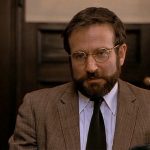
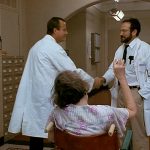

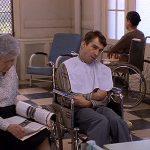
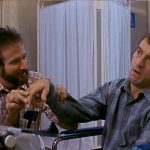
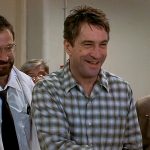
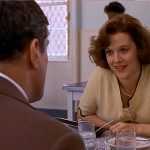
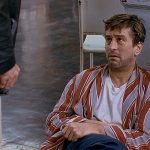
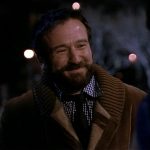
Seen the movie dozens of times and it still makes me laugh at times and cry at times. I never get tired of seeing it again.